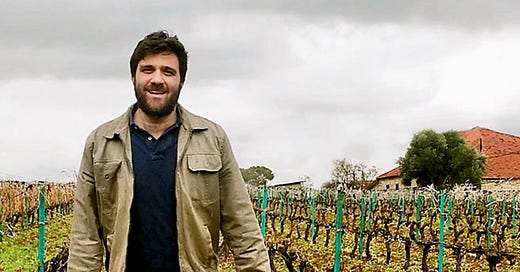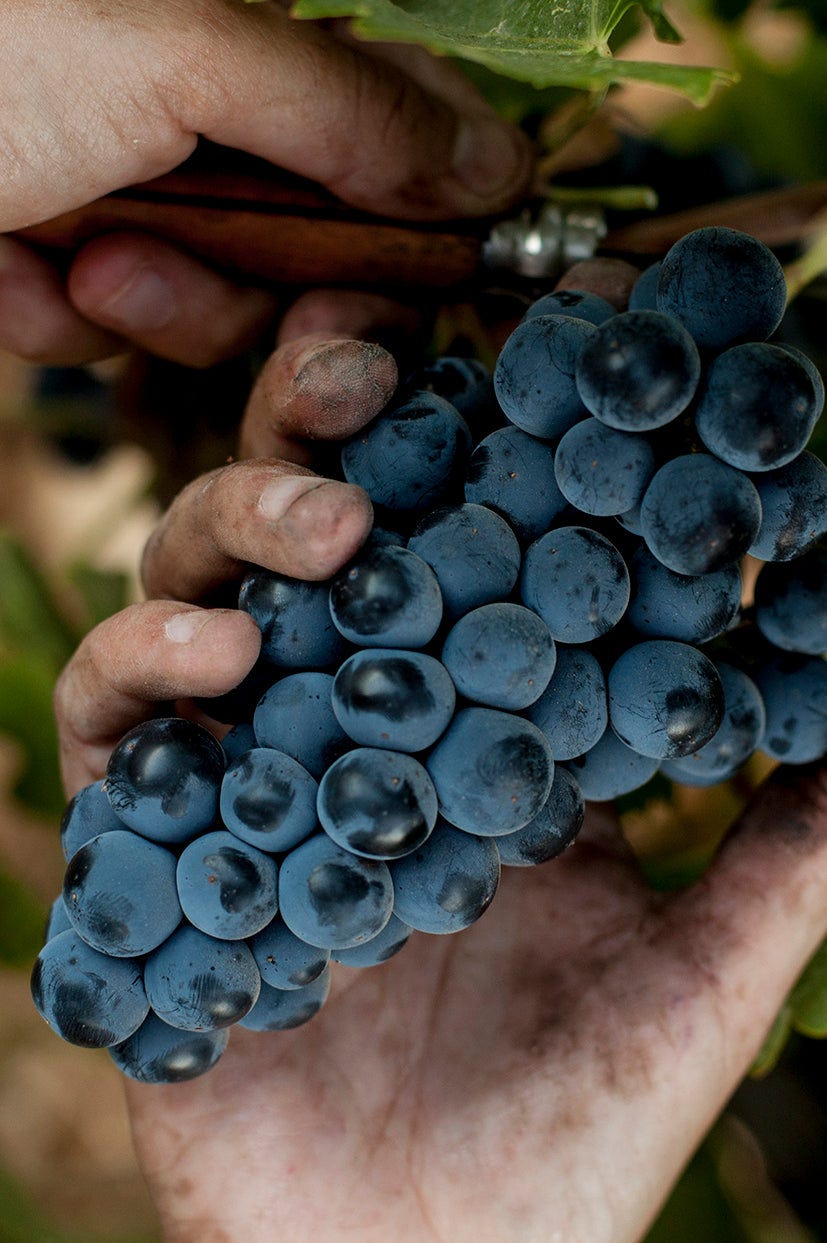Lebanon's winemakers on the brink
The risk of Israel's war in Gaza spreading hangs over its northern neighbour and its unique wines. Plus: what I've been drinking this week


Sitting in London tasting Faouzi Issa’s superb wines, it’s hard to believe that he and the rest of Lebanon’s winemakers are operating in a country on the verge of collapse, now threatened by war.
“Lebanon today is like a house with five roommates where no-one has cleaned or paid the bills for two years,” says Issa, winemaker at Domaine des Tourelles, in the Bekaa valley.
In fact, Lebanon has lurched from crisis to crisis for longer than that. It has been without a president since October 2022, the country’s squabbling parliament unable to agree on a candidate. Since 2019 a liquidity crisis has gripped the banking system, leading to a 90 per cent devaluation of the Lebanese Lira. Public services have collapsed and there are chronic problems with electricity supply. These crises were worsened by Covid 19, and by the catastrophic explosion in Beirut harbour in August 2020.
And now the country is now once again threatened by war. Since Israel’s invasion of the Gaza strip following Hamas’s attacks of October 7 last year, there has been growing tension on Lebanon’s southern border.
Hezbollah, the radical Iranian-backed Shia guerilla army, began shelling northern Israel from southern Lebanon in support of Hamas last October. Since, there have been almost daily artillery exchanges and Israeli air strikes. Several hundred of Hezbollah’s fighters and dozens of Israeli troops have been killed, and around 200,000 people in southern Lebanon and northern Israel displaced.
Now Israel has said that some of its forces are being withdrawn from Gaza and redeployed in the north. Right-wing Israeli voices are calling for another invasion to try to succeed against Hezbollah where Israel’s 2006 incursion into its neighbour failed.
This would be a catastrophe for Lebanon. But as the country waits, the more immediate problem for most Lebanese is the sheer uncertainty of daily life.
“It’s the instability and absence of vision of what we will have next week or next month that’s so hard,” says Issa. “It gets in the way of any plans.”
“The tension is very high,” confirms Elie Maamari, Export Director at Château Ksara, speaking from Beirut this week. The area already sees regular overflights by Israeli military aircraft: “Just an hour ago the whole office shook with sonic booms,” he told me. “This is happening every day.”
Ksara has had two vineyards in southern Lebanon hit by Israeli shells. But the biggest risk for winemakers is to supply lines. Israel’s major northern airbase, Ramat David, is just a little over 100km south of Beirut – less than 10 minutes from take-off in an F16 jet. Lebanon has no air force.
“If something happens, the first things that will be hit will be the airport and port,” says Maamari: during every previous invasion of Lebanon, Israel has bombed the country’s only international airport and Beirut’s harbour.
This is why Issa told me in London: “I might not get home tomorrow” – though on this occasion he did.
The port is especially essential for the country’s winemakers. Because Lebanon manufactures none of the supplies and equipment a winery needs, all of it – from bottles and corks to vehicles and stainless steel tanks – has to come in by sea.
“Shipping bottles is three times more expensive now and takes longer than it did,” says Issa. Maamari says that Ksara brought in all the bottles it will need this year in one shipment late last winter: “It’s a big budget but we can’t take the risk [of being cut off.]”
And the only way that winemakers can get their finished wine out is likewise via Beirut’s port: there are no viable overland routes through war-torn Syria. So “as long as we have a port running, we can export,” says Issa. Nevertheless, as Château Kefraya’s Business Director Emile Majdanali points out: “Beirut Port was closed in 2006 and again in 2020 and we never experienced any out-of-stock situation abroad, as we learned how to anticipate.”
In fact for the moment, Beirut and even parts of the country’s southern Mediterranean coast are full of visitors. July and August are the months when the huge global Lebanese diaspora visit family back home: for now, flights are full and restaurant reservations tight.
It should also be said that Lebanese are remarkably resourceful in such chaos.
“We are used to unstable environments and cope with it: that is in fact the ‘normal’ Lebanon,” says Edouard Kosremelli, Managing Director of Château Kefraya, in the southern Bekaa. “Adaptation and resilience are mandatory to survive in Lebanon.”
As his colleague Majdanali told me when I visited the winery in 2014: “War is a natural state here.” The Lebanese Civil War, 1975-1990, killed an estimated 150,000 people and displaced another million. Yet Château Musar, Lebanon’s most famous producer, missed just two harvests during those bloody years.
One lasting result of the war – and of Israel’s occupation of southern Lebanon, 1982-2000 – was the appearance of Hezbollah, today reckoned to be the most powerful non-state military in the world. It is certainly far stronger than Lebanon’s small, poorly equipped national army, and operates as a state-within-a-state. It is also a political party and has participated in government at various points.
Nevertheless, the country enjoyed a boom for 15-20 years after the end of the Civil War. Lebanese came home from France, the US and Canada and invested. Issa arrived as winemaker at Domaine de Tourelles towards the end of this period, in 2008, after three years working in France in Margaux and Côte Rotie.
Things started to turn in Lebanon with the assassination of Prime Minister Rafic Hariri in 2005 – almost certainly killed by Hezbollah working with Syrian intelligence - and Israel’s invasion in 2006. Such was Hezbollah’s strength that it forced the Israelis to withdraw. The Bekaa’s winemakers began their harvests days after the Israeli pull out on 14 August.
I first visited the country in 2008 at the moment that Hezbollah staged an armed uprising against political opponents, arriving on the last flight in or out for over a week. I never made it to the Bekaa vineyards, cut off by fighting between rival Sunni militias, though I did visit Château Musar, and met winemakers in Beirut, despite fighting there too. I finally escaped in a taxi to Syria, my driver stopping every few miles to ask people by the side of the road if the way ahead was safe.
Worse was to come for Lebanon in 2011 with the Syrian civil war. It is where the largest number of Syrian refugees fled to – perhaps as many as two million, in a nation previously numbering just over four million. Long lines of refugee shacks border roads through much of the east of country. Their plight is heart rending. I reported from a UNHCR centre for the London Evening Standard in 2014 and it remains the most searing experience of my journalistic career: I’ll never forget the thousand-yard stare of a clearly deeply traumatised 10 year-old boy whose mother I interviewed.
And now war threatens again. But Lebanon’s winemakers are unbowed: “We have to keep on moving,” says Issa. Maamari tells me that the grapes in the Bekaa are healthy after a good growing season – not too hot, a little more rain than usual – and Ksara plan to start the harvest on 20 August. Kefraya expect to start on 7 or 8 August.
All of Lebanon must hope that the nation somehow manages to keep running, in its chaotic way.
“We’re still happy, we love to drink and socialise,” says Issa. “You can still eat in the best restaurants, dress well and be a trend setter. But we don’t know when the war will hit us.”
What I’ve been drinking this week
Boeckel Riesling 2018, Wiebelsberg Grand Cru - beautiful Alsace Riesling with a bit of bottle age: ripe, rounded pear fruit underpinned with precise citrus zinginess, very long. And I still have another bottle left in my cellar, yay! (N/A UK.)
Domaine de Kalathas ‘Un Eté Grec’ 2021 - this boutique rosé from the Greek island of Tinos is made from the obscure local Koumariano grape: it’s mineral, elegant and fine, beautifully balanced. I say it’s a (dark) rosé as that’s what the Greek label says, although importer Maltby and Greek describes it as red, as does Noble Rot restaurant/wine bar in London, where I drank a glass, chilled. Expensive for what it is, though very individual (Maltby and Greek, £45.)
Cave de Tain “Exploration” Syrah 2021, IGP Collines Rhodaniennes - the super-reliable Tain-l’Hermitage co-op make a big deal of this wine having no added sulphites (in the “natural” wine style) but it’s really just well-made Rhône Syrah, from a producer notably committed to sustainable agriculture. Dark berry fruit and nice structure with classic northern-Rhône freshness. Good value (Vino Fandango, £12.79. All About Wine has the 2022, Songbird Wines the 2020, from £10.79.)





The Syrah isn't the Syrah Première Note?
I tasted that as well as some other 'sans soufre' wines from Chapoutier earlier this year and I don't get the reason for doing it. Sure, they want to get in on some of that hot, juicy zero zero market, but I can't see someone into that going, "Oh, this wine by this large coop producer doesn't have sulfites, so it's better!" as it's not a winery-wide concept. Then again, people buy Diet Coke, so what do I know?
In any case, I would very much enjoy seeing Cave de Tain pop into la Dive Bouteille with these wines one year.